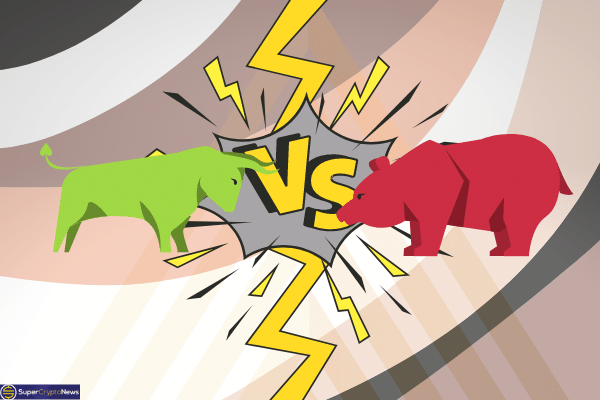
Looking at centralization from a historical perspective, blockchain technology opens truly revolutionary options for people to interact with each other.
We can see that decentralization is fundamental for people to operate in a more natural system. I will show that decentralization allows for natural human interaction, and that there are existing movements and specific projects which honour a closeness with some kind of natural order.
What is unnatural about centralization?
For centuries, much of humankind has been under centralized control and authority; be that by the king, queen, emperor, sultan, dictators, presidents and so on.
Traditionally, financial, governmental and bureaucratic systems all enforce a hierarchical pyramid of power that controls the people. This not only slows down progress, but inhibits mankind’s ability to develop at its natural, dynamic pace.
The social contract is involuntary
The great political philosophers of the 17th century Enlightenment came up with the social contract — where humans collectively agree to compromise their freedom for civil society.
According to Hobbes, Locke, Rousseau and others, we evolved from living in the state of nature to living in an organized society by consciously handing over power to a leader who maintained order — for the greater good.
This means that instead of killing and stealing from each other, there is law which enforces safety, defines property and establishes rules so we can all live in harmony. As all political ideals, this looks a whole lot better on paper than in reality.
However, none of us are approached after we are born by government officials and are asked whether we agree to sign this social contract. Our participation in society and all its requirements is involuntary. We are obeying a social contract with a centralized power that we never signed.
This means that our actions are enforced. We pay tax not because we are generous, or particularly love our government and trust that it will use it wisely, but because we will be punished otherwise.
We have indirect relations with the recipients of our hard-earned money, and are obstructed by intermediaries. Indirect relationships are normalized and alienating — the cold nature of control and bureaucracy. The connections between people are based on hierarchies of authority and power where we can no longer naturally connect with one another or act freely.
Centralization of power in society creates alienation in our interaction, since we cannot access power directly, and there are obstacles in the way of communication. Centralization makes progress slower and less efficient, as it acts as a bottleneck that limits action.
Freedom is limited and rules are dictated by the few in power. The involuntary yet normalized surrender of freedom to centralized power makes us self-discipline ourselves within the given rules. Human interaction in terms of trade or governance becomes inorganic, cold and unnatural.
What is so natural about decentralization?
After centuries of state-control, decentralization and revolutionary technologies like bitcoin propagate a “natural shift in human connectivity” (evok3d, 2017). Blockchain technology removes third party intermediation and enables an alternative, decentralized organization of society.
It allows for your bank to be in your pocket, for trade to be directly negotiated between you and your chosen partner, and for governance to be an array of choices independent of geography. This revolutionary shift is empowering to individuals, if they so want it.
Decentralization in general terms allows individuals to develop faster and more efficiently in a natural way. For instance, what many consider to be the Dark Ages was actually a time where Europe developed the quickest.
According to historian Paul Kennedy (The Rise and Fall of Great Powers, 1981), after the fall of Roman Empire, separate states and kingdoms were left to themselves developing what he calls “competitive pluralism”. In small, autonomous entities, the kingdoms progressed fasted and in competition against one another, pushing for further development in each kingdom. Soon enough, European countries even had enough power and resources to colonize other parts of the world.
Regardless of the negative connotation of this example, history shows that decentralization naturally enables faster development and a different dynamic which is not controlled by a higher power.
Sharing economies — the decentralization movement begins
Sharing economies are nothing new: Humans have always shared. However, it is a recent phenomenon in its current manifestations in business and technology.
Sharing economy is an archetype of decentralization. The term arose in the early 2000s and gained influence in the wake of the 2008 financial crash as new business models emerged. Sharing economies often rely on systems of trust, open source data, crowdfunding and efficient use of resources — features that make every actor autonomous and free to play within the rules of the game. This forms an equal playing field where arbitrary hierarchies are eliminated.
Sharing economies were easily facilitated with the internet — Wikipedia becoming an exemple of decentralization taking place. Then AirBnB, Blablacar, Couchsurfing, and Uber came as successful indicators of the increasingly popular sharing economy. These applications make sharing with strangers less risky, and cheating more risky as one’s reputation and therefore profit is at stake. The market turnover for these services is on a rise as depicted by the turnover and speculation:
“According to data provided by Origin, Uber, Airbnb and other centralized sharing marketplaces are expected to earn $40 billion in platform fees annually by 2022, and the sharing economy as a whole is expected to top $335 billion by 2025.”
While these services rely on decentralization to operate, they remain centralized organizations. This means that the platform acts as an intermediary, so while the customers feel they are giving directly to the individual with which they are interacting, there is still the company taking profit. Furthermore, the intermediaries are vulnerable to government clampdowns, as Uber has seen around the world.
Sharing economies take an affirmative step towards decentralization of power. What is natural about this is that you are dealing with fellow humans, not an institution. You will have a much more natural human interaction with an airBnB host than in a hotel where interactions are scripted often inpersonal. At least this is usually the case for the time being. In sharing economies, relations develop naturally and with less constraints.
When blockchain comes into play
Digital currencies and blockchain-based organizations offer a truly decentralized (sharing or not) economy. Its very first manifestation in Bitcoin is P2P which speaks for itself — humans interaction are reduced and at the same time evolved to peer-to-peer negotiation. It is not that peers are truly, physically interacting with each other, but more importantly the concept is being socially ingrained and normalized.
Various projects are leading the way to a truly decentralized sharing economy. For example, Storj allows for digital data to be stored on a host hard drive using end-to-end encryption, like AirBnB for hard drive space. EthLend is a decentralized lending service, allowing people to lend money to each other with self-determined interest rates, regardless of geographical borders. With Power Ledger, consumers can directly buy or sell renewable energy from one another.
Furthermore, digital marketplaces are evolving. Open Bazaar is an open-source P2P commerce platform supporting over 50 cryptocurrencies. Basically a decentralized Ebay. Particl is creating a “decentralized and democratic economy” where decentralized applications (Dapps) can be built in a secure and scalable environment. Lykke is establishing a global marketplace for trading assets and cryptocurrencies.
Blockchain technology has the potential to allow people to function without constraints of hierarchies.
Successful innovations come from mimicking natural systems
An interesting point that came to my attention through various blockchain conferences, meetups, whitepapers and interviews is the referencing to natural systems in order to justify the organizations of whatever altcoin is being presented. Here are a few examples.
In conversation with Richard Olsen, the founder of Lykke, references to the circulatory system were used to compare to the necessary liquidity of the economy. In a previous article, I noted that:
“Our blood has the important role of bringing oxygen into the cells and removing waste, just as the financial market brings assets in as needed and transports them away elsewhere as appropriate… Societies should engineer a system which is self-sustaining and in sync with nature, designed by those who use it. Therefore we must take inspiration from natural systems, like the human body.”
I witnessed an interesting presentation by Matthew Schutte, from the team of Holochain. What struck me was that natural systems were constantly used as metaphors, analogies or justifications for how things work in the metacurrency. Schutte explains that they could simply “piggy-back on millions of years of research and development done by nature.”
Holochain wants to put humans in the center. It provides the framework which “enables a distributed web with user autonomy built directly into its architecture and protocols.” Unlike blockchains, Holochain limits access to the data on the ledger to those it is relevant to, making the ledger far more efficient. The security model is then customized for specific contexts.
On github, Holochain explains its holographic storage, writing:
“Every node has a resilient sample of the whole… This seems to be the strategy used to create resilience in natural systems. For example, where is your DNA stored? Every cell carries its own copy, with different functions expressed based on the role of that cell.
Where is the English language stored? Every speaker carries it. People have different areas of expertise, or exposure to different slang or specialized vocabularies. Nobody has a complete copy, nor is anyone’s version exactly the same as anyone else, if you disappeared half of the English speakers, it would not degrade the language much.”
Schutte emphasized in his talk that there is no CEO cell, implying that hierarchies are obsolete. This way, mutual sovereignty between agents is maintained. Schutte used an analogy to our immune system, particularly how white blood cells fight an infection. They all swarm in to attack the foreign body until the threat is over. Our bodies handle threats is the same way Holochain operates to maintain integrity.
The structure of these projects is mimicking patterns that take place in nature to produce the best results. This approach is bringing features of language, culture, immune systems, circulatory systems (Schutte further used analogies about bee communication, friends card-playing, and flirting) into computing and digital communication.
This being said, it is important to note that not all blockchain projects use this approach. In fact, the projects that do worry about these things may be very few. However, these considerations can help you evaluate which projects may be particularly inspiring or possibly successful. In a space where innovation is taking place so fast and things are changing everyday, it is useful to develop an insight into which approaches work best. Sooner or later we will find out what will stand the test of time.
A future inspired by nature
It is known that some of the most successful innovations are inspired by natural systems. Perhaps the blockchain-fueled decentralization phenomenon can bring us closer to nature.
Bitcoin solved the problem of how to operate safely in a trustless environment. Without hierarchies, we are free from constraint and control from others, and freedom allows for processes to develop naturally. We can have more agency in our lives.
Bottom-up cooperation allows for a more organic, dynamic development of trade, commerce, finance, governance or whatever it may be than a controlled, top-down approach. The removal of centralization enables interaction to take place on its own terms. Contrary to the decentralized Europe of the Middle Ages, today’s centralized institutions can’t keep up with the pace of development taking place in P2P networks.
It appears that natural systems are being introduced into our data and computing technology. There is an emerging belief that the systems that dictate our lives should resemble nature.
The people of the modern world are somewhat removed from their natural state, but still when something resonates with nature, it works. This is something we must keep in mind as we continue to develop and participate in the systems we live in.



